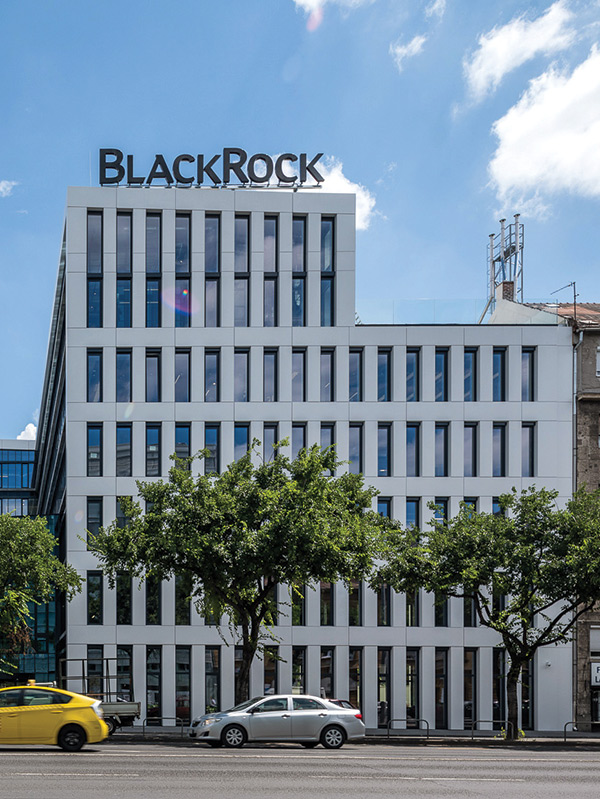The pandemic that adversely affected so many sectors in 2020 did not stop investment in Hungary’s booming Business Service Center (BSC) industry. Nearly 64,000 people work at more than 130 such companies, mainly in Budapest but in five other metros as well. In 2020, 25 companies picked Hungary for their BSC, ICT and R&D operations, adding 3,000 employees working in national, regional and global capacities. One was U.S.-based Diligent Corporation, which is opening a €31 million ($37 million) Center for Global Product Innovation in Budapest, where it will employ 300. The company markets software for public corporate governing bodies.
Some Diligent employees may work remotely, as do many in the BSC sector already, notes Robert Ésik, CEO at the Hungarian Investment Promotion Agency (HIPA). “In response to the pandemic, business services centers have shown flexibility and resilience. On the one hand, companies have successfully shifted their activities — including complex processes — to a home-office environment. Working from home can be managed effectively by the centers without sacrificing productivity. Face-to-face interactions may not always be required, and employees appreciate the flexibility that the opportunity to work from home has provided to them. On the other hand, the pandemic has opened new opportunities for recruitment, and companies started to reach out for new talent pools in the countryside, as a physical presence in the office was no longer a requirement.”
From wherever their employees work, BSC operations find in Hungary a plentiful, highly skilled and multilingual workforce; advanced infrastructure that facilitates remote working and commuting; and a location that is ideal for providing business services across multiple time zones.
Where Location Requirements Are Met
Thermo Fisher Scientific employs more than 400 at its Budapest Global Business Service Center, which opened in 2018. The Center supports customers in such areas as Finance, Customer Care, IT, Technical Application Support, Payroll and Procurement. “Hungary is home to a skilled and talented workforce, which was a major factor in our decision to locate our center here,” says Miklós Koczor, Site Lead GBS Budapest at Thermo Fisher Scientific. Other factors, he adds, include ”the size and growth trajectory of the business service industry, the competitive labor cost, the quality of infrastructure and the significant support provided by the Hungarian Government, HIPA and the Hungarian Outsourcing Association.”


Also in 2018, American investment management firm BlackRock opened a data, technology and business operations hub in Budapest. “The Budapest operation is a core part of BlackRock’s strategic operating model,” says Katie Parry, Head of BlackRock Budapest. ”With its more than 800 employees, it provides technology, language and quantitative-analysis skills that are critical to creating value for clients while driving operational efficiencies.“
BlackRock picked Budapest to access its talent pool and to diversify its footprint in a location that would foster future innovation and growth, Parry explains. “Hungary was primarily selected for the diverse talent pool that has deep technology and financial education and experience combined with a challenging mindset that helps drive innovation. The central European location is also an advantage for multinationals in terms of proximity to the rest of Europe and overlap with global time zones.”
Irving, Texas-based Flowserve Corporation, a supplier of fluid motion and control products and services, is celebrating its fifth anniversary in Hungary this summer. “We decided to go with a hybrid model of having one site in Debrecen and one in the capital, Budapest,” says Tamás Kovács, Managing Director, BSC, Flowserve Hungary Services. The multinational employs about 400 people in Hungary in Accounting, IT, Payroll, Audit, Tax, Pre-Sales and R&D Engineering.
A Location for Higher-End Services
“We chose to open the Center primarily for labor arbitrage purposes, initially,” says Kovács. “Ever since, the BSC has become a centralization hub and one of the vehicles for driving change in the company. Hungary was chosen for its favorable geographical location and ability to work with the important time zones from North America to Asia simultaneously. Human resource flow is ensured by the number of universities; graduates are capable and multilingual. While Hungary is a medium-cost location now, the value for money is still there. Cost, education, resource availability, languages and infrastructure allow us to bring in higher-value-add and knowledge-based activities as opposed to repetitive, transactional ones only, as was the case historically. Flowserve, like other players in the BSC sector, is offering higher-value-add, more complex jobs now, and various other corporate functions are planning to use the BSC more extensively.”
Flowserve operates an R&D Center in addition to its BSC presence in Hungary. Simulation, design to value and order engineering are the primary areas of focus. “Lately,” says Kovács, “we are expanding to IoT (Internet of Things) solutions, which is a leading-edge technology within Flowserve. We are happy with the performance of the R&D function in Hungary, and it is being extended to other corporate functions, like IT.”
This example of companies expanding their business service functions in Hungary underscores HIPA CEO Ésik’s assertion that: “The Hungarian BSC sector will continue to stand out as a dynamically developing segment of the economy, and Hungary will remain an attractive and proven location for business service centers in Central and Eastern Europe.”

This Investment Profile was prepared under the auspices of HIPA, the Hungarian Investment Promotion Agency. For more information, please visit www.hipa.hu.

